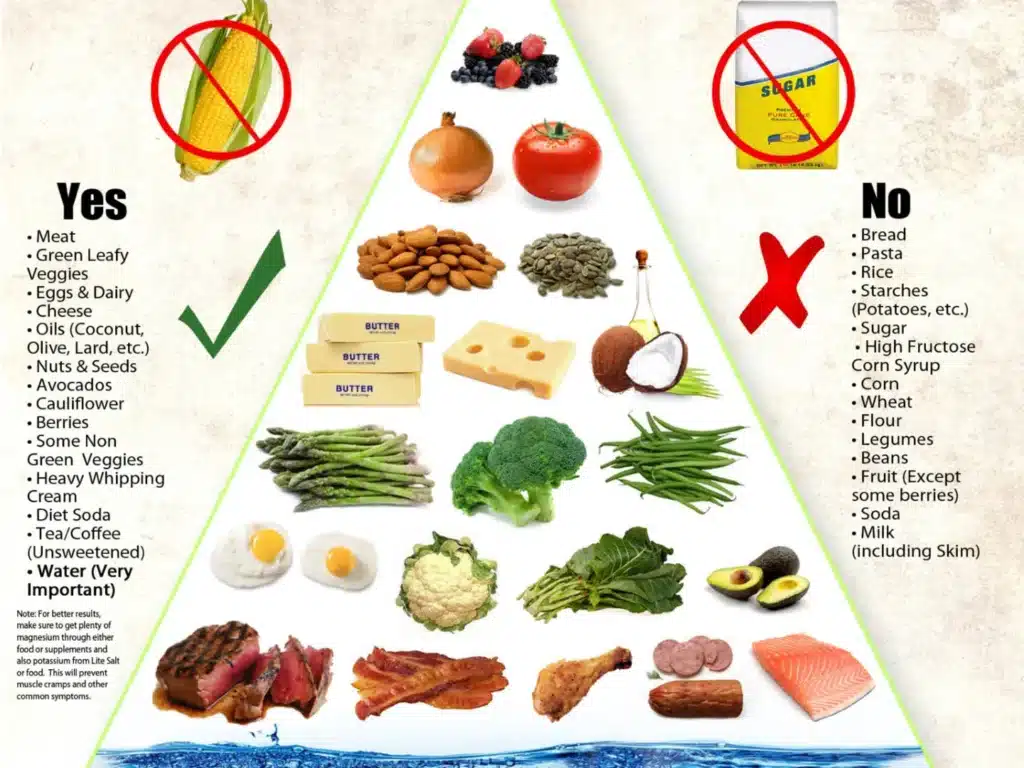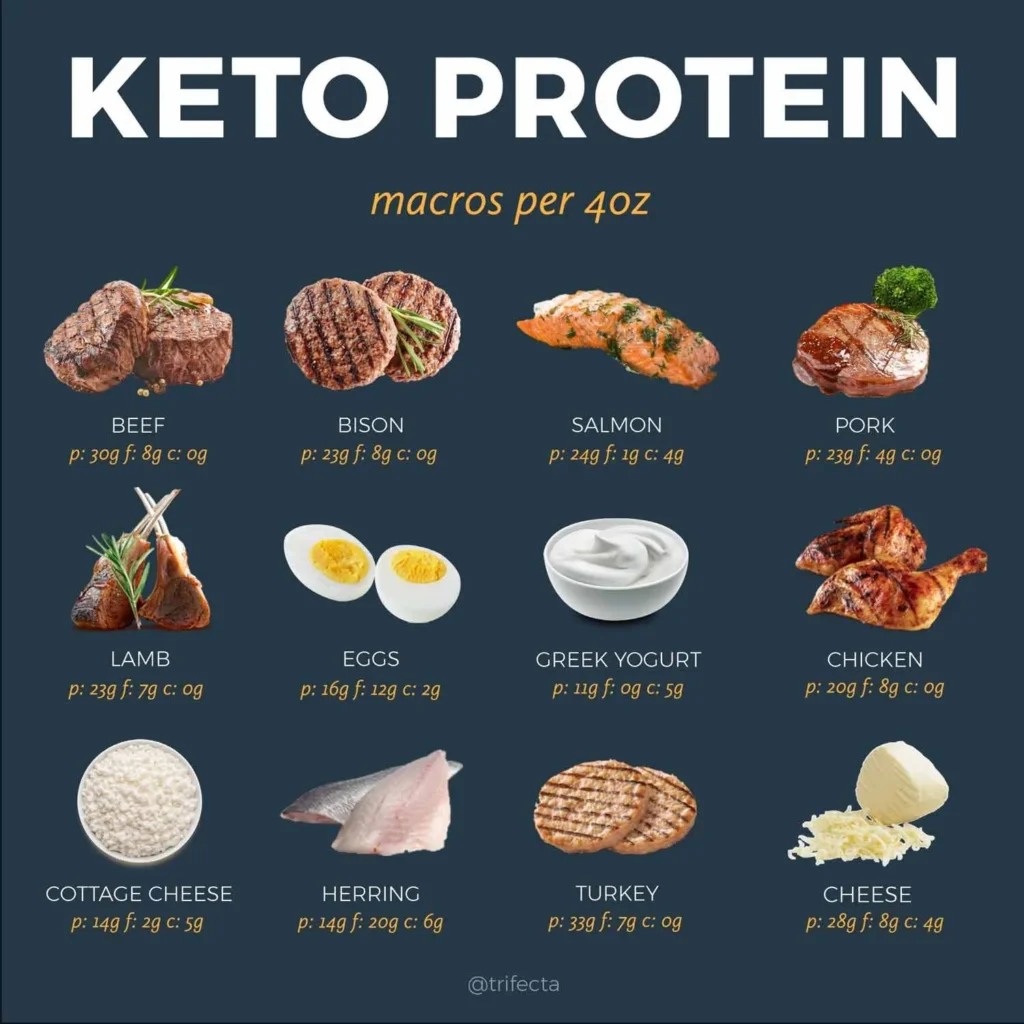The ketogenic diet, or keto diet, has gained popularity in recent years as a way to lose weight and improve overall health. This high-fat, low-carbohydrate diet has been shown to be effective in helping people shed excess pounds and manage conditions such as diabetes and epilepsy. However, like any diet, the keto diet can lead to deficiencies in certain nutrients if not followed properly. In this article, we will explore the potential deficiencies that can arise from following a keto diet and provide tips on how to avoid them to stay healthy.
What is the keto diet?
The keto diet is a high-fat, low-carbohydrate diet that is designed to put the body into a state of ketosis. Ketosis is a metabolic state in which the body burns fat for energy instead of carbohydrates. This is achieved by drastically reducing the intake of carbohydrates and replacing them with fats and proteins.
The typical breakdown of macronutrients on a keto diet is around 70-75% fat, 20-25% protein, and 5-10% carbohydrates. This means that foods such as meat, fish, eggs, cheese, nuts, seeds, and oils are emphasized, while starchy vegetables, grains, fruits, and sugary foods are restricted.
The keto diet is known for its rapid weight loss results, as the body burns fat stores for energy instead of glucose from carbohydrates. It can also improve insulin sensitivity, reduce inflammation, and provide steady energy levels throughout the day.
However, the keto diet is not without its drawbacks. One potential downside is the risk of nutrient deficiencies if the diet is not properly balanced. Certain vitamins, minerals, and other nutrients may be lacking in a keto diet, leading to potential health problems if left unchecked.
Common keto diet Deficiencies
1. Vitamin B Complex
The B vitamins are a group of water-soluble vitamins that play a crucial role in energy metabolism, nerve function, and overall health. On a keto diet, sources of B vitamins such as whole grains, legumes, and fruits are restricted, which can lead to deficiencies if not supplemented.
Symptoms of a B vitamin deficiency include fatigue, weakness, nerve pain, and cognitive issues. To prevent deficiencies, it is important to consume B vitamin-rich foods such as meat, fish, eggs, and dairy products. Additionally, B vitamin supplements can be taken to ensure adequate intake.
2. Magnesium
Magnesium is an essential mineral that is involved in over 300 biochemical reactions in the body, including energy production, muscle function, and nerve transmission. On a keto diet, magnesium-rich foods such as beans, whole grains, and fruits are limited, which can lead to a deficiency.
Symptoms of magnesium deficiency include muscle cramps, fatigue, and irregular heartbeat. To prevent deficiencies, it is important to consume magnesium-rich foods such as nuts, seeds, leafy greens, and fish. Magnesium supplements can also be taken to ensure adequate intake.
3. Potassium
Potassium is an important mineral that is involved in nerve function, muscle contraction, and fluid balance in the body. On a keto diet, potassium-rich foods such as bananas, potatoes, and beans are restricted, which can lead to a deficiency.
Symptoms of potassium deficiency include muscle cramps, weakness, and irregular heartbeat. To prevent deficiencies, it is important to consume potassium-rich foods such as avocados, spinach, salmon, and mushrooms. Potassium supplements can also be taken to ensure adequate intake.
4. Fiber
Fiber is a type of carbohydrate that is important for digestive health, blood sugar control, and weight management. On a keto diet, fiber-rich foods such as whole grains, legumes, and fruits are limited, which can lead to a deficiency.
Symptoms of fiber deficiency include constipation, bloating, and digestive issues. To prevent deficiencies, it is important to consume fiber-rich foods such as nuts, seeds, leafy greens, and low-carb vegetables. Fiber supplements can also be taken to ensure adequate intake.
5. Vitamin C
Vitamin C is an essential nutrient that is important for immune function, collagen production, and antioxidant protection. On a keto diet, vitamin C-rich foods such as citrus fruits, berries, and peppers are restricted, which can lead to a deficiency.
Symptoms of vitamin C deficiency include fatigue, slow wound healing, and frequent infections. To prevent deficiencies, it is important to consume vitamin C-rich foods such as broccoli, Brussels sprouts, and kale. Vitamin C supplements can also be taken to ensure adequate intake.
FAQs
Q: Can I get all the nutrients I need on a keto diet?
A: While it is possible to get all the necessary nutrients on a keto diet, it may require careful planning and supplementation. It is important to consume a variety of nutrient-dense foods and consider taking supplements to fill in any gaps in your diet.
Q: Should I take a multivitamin on a keto diet?
A: Taking a multivitamin can be a good way to ensure you are getting all the essential nutrients on a keto diet. Look for a supplement that provides a balanced mix of vitamins and minerals to support overall health.
Q: How can I prevent nutrient deficiencies on a keto diet?
A: To prevent nutrient deficiencies on a keto diet, focus on consuming a variety of nutrient-dense foods such as meat, fish, eggs, nuts, seeds, leafy greens, and low-carb vegetables. Consider taking supplements to fill in any gaps in your diet and consult with a healthcare provider for personalized recommendations.
Q: Are there any specific nutrients I should be mindful of on a keto diet?
A: Some nutrients to be mindful of on a keto diet include vitamin B complex, magnesium, potassium, fiber, and vitamin C. These nutrients may be lacking in a keto diet, so it is important to consume foods rich in these nutrients and consider supplementation if needed.
Q: How can I tell if I have a nutrient deficiency on a keto diet?
A: Symptoms of nutrient deficiencies on a keto diet may include fatigue, weakness, muscle cramps, digestive issues, slow wound healing, and frequent infections. If you experience any of these symptoms, consult with a healthcare provider to determine if a deficiency may be the cause.
In conclusion, the keto diet can be an effective way to lose weight and improve overall health, but it is important to be mindful of potential nutrient deficiencies that can arise. By consuming a variety of nutrient-dense foods, considering supplementation, and consulting with a healthcare provider, you can stay healthy and balanced on a keto diet. Remember to listen to your body and make adjustments as needed to support your individual health goals.

